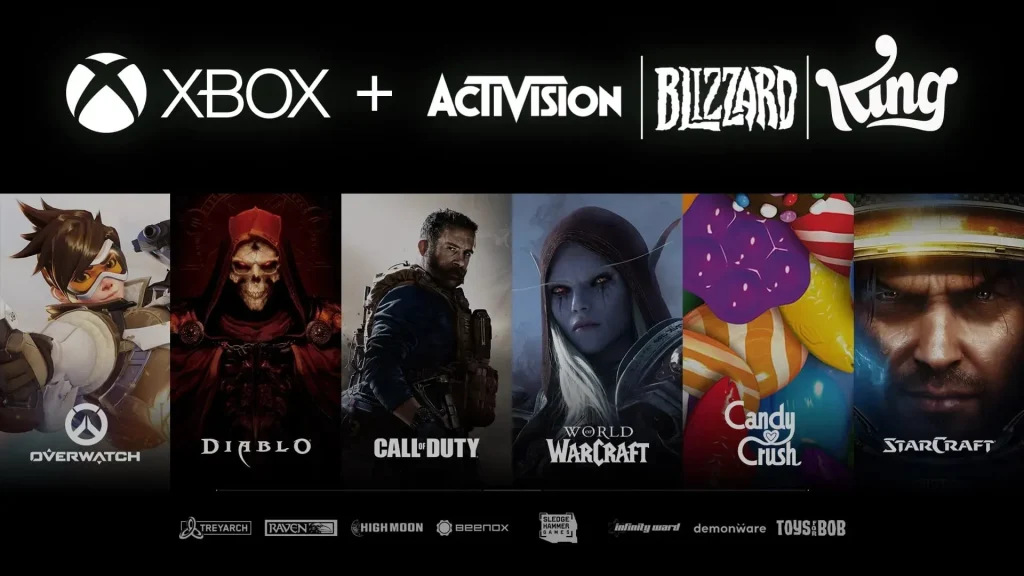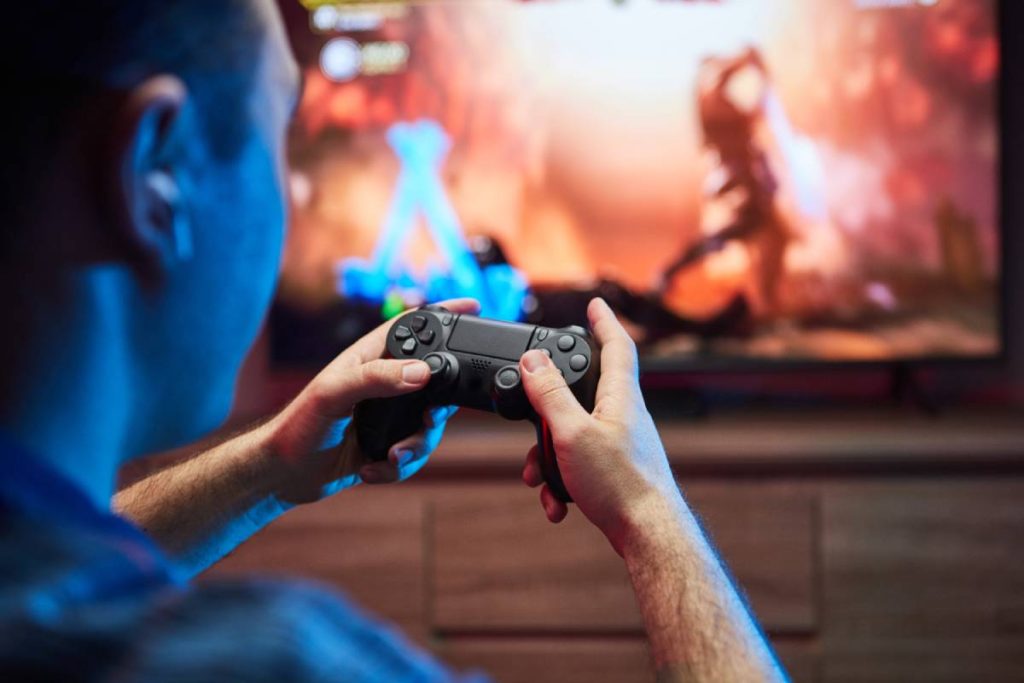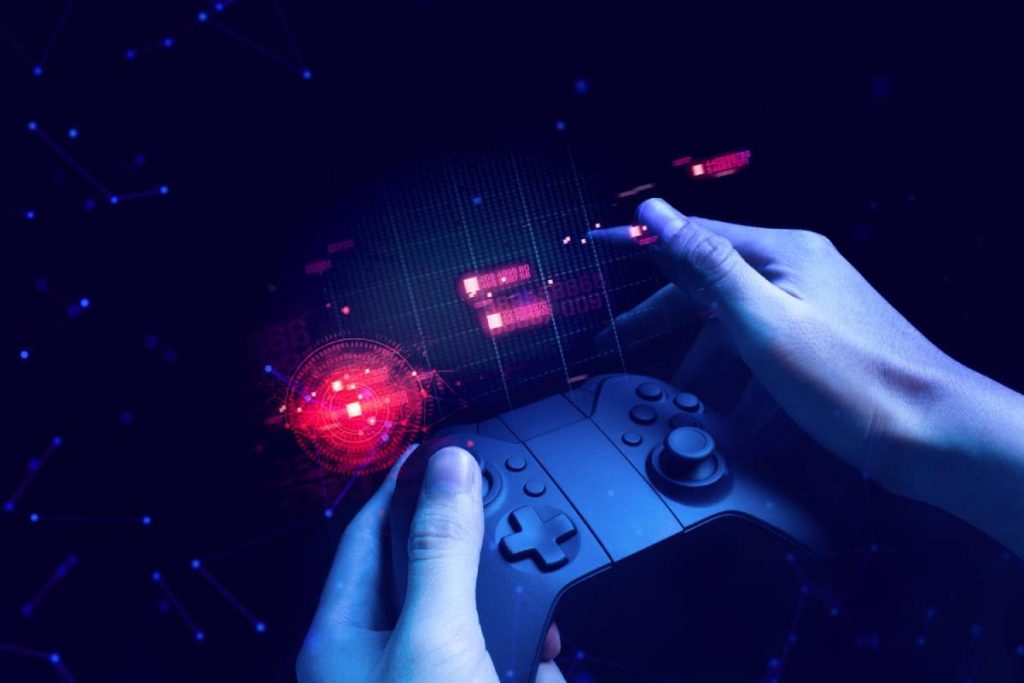The recent court ruling on the Microsoft Activision Blizzard acquisition marks a significant moment in gaming industry news, as the US government’s Federal Trade Commission (FTC) faced a setback in its efforts to contest this monumental $68.7 billion merger. On one hand, the 9th Circuit US Court of Appeals affirmed the decision that allows Microsoft to proceed with the acquisition, stating that the FTC failed to demonstrate valid concerns regarding competition in the gaming market. This decision comes in light of the FTC’s appeal which underscored fears of Microsoft potentially dominating cloud gaming competition, a vital aspect of the future gaming landscape. Notably, the court found that all major players, including Sony and Nintendo, have leveraged first-party exclusives, an argument that renders the FTC’s claims of reduced competition less convincing. As the dust settles on this critical court ruling, the implications for the gaming sector and the ongoing discourse about mergers in this dynamic industry continue to unfold.
The acquisition of Activision Blizzard by Microsoft represents a landmark event in the gaming sector, illustrating a transformative merger poised to reshape the competitive landscape. Amidst the legal challenges posed by the FTC’s appeal against this significant consolidation, the courts have reaffirmed their backing of Microsoft’s strategy to bolster its gaming portfolio. This pivotal decision not only affects corporate dynamics but also highlights broader trends in the video game market, where large companies seek to enhance their cloud gaming platforms and exclusive content offerings. As discussions surrounding regulatory frameworks intensify, the implications of this merger resonate beyond just two entities, potentially influencing a wide array of stakeholders in the digital entertainment arena. The unyielding competition in the gaming industry only adds to the complexity of these developments, reinforcing the need for vigilant observation as industry norms evolve.
The Outcome of the FTC Appeal Against Microsoft’s Acquisition
The recent ruling of a US court has effectively closed the door on the Federal Trade Commission’s (FTC) appeal against Microsoft’s attempt to acquire Activision Blizzard, a move that has sent ripples through the gaming industry. This decision by the 9th Circuit US Court of Appeals reaffirms Microsoft’s right to proceed with its $68.7 billion merger, a deal originally announced in January 2022. By rejecting the FTC’s requests to block the acquisition, the court has not only validated the initial ruling made by Judge Jacqueline Scott Corley but has also indicated a confidence in the legal standards applied during that process.
Critics of the merger worried about potential monopolistic behavior and the implications for cloud gaming competition. The court, however, found that the FTC did not sufficiently prove that the merger would likely reduce competition significantly in the gaming sector. The judges pointed out that while the FTC sought to argue Microsoft’s increasing dominance in the cloud gaming market, they did not provide enough evidence to merit a reversal of the ruling. This outcome leaves many in the industry to speculate on how Microsoft’s strengthened position could reshape the future dynamics of video game distribution and competition.
Implications for the Gaming Industry Post-Merger
With the court siding with Microsoft in the legal dispute over the Activision Blizzard acquisition, the implications for the gaming industry are profound. This merger is set to bolster Microsoft’s portfolio of gaming titles and intellectual properties, strengthening its competitive edge against rivals such as Sony and Nintendo. Given the previous court determinations, it appears that exclusive titles will play a crucial role in Microsoft’s strategy, allowing them to attract a larger user base and drive subscription services in a highly competitive environment.
The outcome of this court ruling not only reflects on Microsoft’s business practices but could also pivot the course of gaming industry news. As Microsoft enhances its cloud gaming services, the landscape might transform significantly, raising the stakes for traditional gaming companies. This ruling may encourage other tech giants to consider similar mergers or acquisitions, shifting how games are developed, sold, and played. As companies jockey for position in a rapidly evolving market, this acquisition will likely be a turning point in the ongoing battle for dominance in the digital gaming arena.
The Future of Cloud Gaming After Microsoft’s Acquisition
The court’s affirmation of the merger between Microsoft and Activision Blizzard signals a promising horizon for cloud gaming. As Microsoft seeks to integrate Activision’s popular franchises, it will likely enhance its cloud gaming offerings, which is a competitive frontier within the gaming market. The appeal by the FTC raised concerns over cloud gaming competition, suggesting that a more dominant Microsoft could pose risks to the market’s balance, but the court assessed that the evidence did not support these fears. With this merger, Microsoft is now poised to lead the charge in cloud gaming technology and infrastructure.
Furthermore, this development could also challenge existing cloud gaming platforms by reshaping consumer expectations and the services provided. As Microsoft scales its cloud capabilities, other players in the industry might find themselves under pressure to innovate and offer unique experiences to retain users. The successful acquisition not only boosts Microsoft’s market share but could also stimulate further investments in cloud gaming, which may lead to technological advancements and improved user experiences across the board.
Impact of Microsoft’s Merger on Competition in Esports
As Microsoft consolidates its power in the gaming industry through the acquisition of Activision Blizzard, the landscape of esports could also undergo significant changes. By integrating some of the world’s most recognized game franchises into its ecosystem, Microsoft can enhance its dominance in the esports field, which thrives on competitive gaming events and player engagement. This merger could enable the company to create tailored esports marketing strategies, develop exclusive event partnerships, and foster professional gaming leagues that leverage Activision’s renowned titles.
Competitive gaming is a rapidly growing segment that could benefit from Microsoft’s stronger infrastructure and cloud-based gaming services. Experts have suggested that Microsoft’s expanded portfolio will elevate esports’ visibility and credibility, attracting new audiences as well as sponsors. The synergistic potential between Microsoft’s cloud services and Activision’s popular games could redefine how esports experiences are produced and consumed, positioning Microsoft as a pivotal player in the evolution of competitive gaming.
Legal Precedents Set by Microsoft’s Acquisition Case
The legal outcome of Microsoft’s acquisition of Activision Blizzard sets an important precedent in antitrust law, particularly as it pertains to technology mergers in the gaming sector. The court’s ruling, which favored Microsoft’s appeal against the FTC, emphasizes the judicial system’s support for corporate consolidation in the tech industry. This case has implications far beyond the immediate merger; it may influence how future technology mergers are scrutinized and judged, potentially making it easier for large corporations to consolidate their holdings.
Moreover, this ruling signals to other companies that demonstrating market domination does not entirely negate the ability to merge with other entities. The court upheld the view that the competitive practices within the gaming industry involve complex dynamics where first-party titles are common across major manufacturers. This could encourage other tech giants to pursue their ambitious mergers without the fear of prolonged legal battles, thus leading to further consolidation within the industry as companies look to enhance their offerings.
Consumer Reactions to the Microsoft Activision Merger
The response from consumers regarding Microsoft’s acquisition of Activision Blizzard has been mixed, showcasing the complexities involved in such a significant merger within the gaming community. While some gamers express optimism about the potential for improved game quality and the availability of beloved franchises on platforms like Xbox Game Pass, others harbor concerns about reduced competition and the risk of exclusive content becoming a norm in the gaming landscape. The prospect of first-party exclusives has raised alarms, particularly among PlayStation users who fear losing access to major titles.
Moreover, consumers are keenly interested in how this merger will affect pricing models in the gaming industry. With Microsoft aiming to build an expansive library of games, gamers are hopeful that this could mean more affordable subscription options. However, skeptics worry that as Microsoft gains more control, pricing could shift, potentially leading to higher costs for gamers if competition dwindles. The balance between competitive offerings and consumer prices remains a critical topic in gaming forums and discussions, reflecting the varying opinions on the long-term impacts of this merger.
The Role of Regulatory Agencies in Mergers Like Microsoft’s
The FTC’s attempt to block Microsoft’s acquisition of Activision Blizzard underscores the pivotal role that regulatory agencies play in corporate mergers, especially in rapidly evolving sectors like technology and gaming. Regulatory scrutiny is crucial not just for evaluating the financial implications of a merger but also for considering its broader impact on competition and innovation within the market. The nuances of the FTC appeal reflect ongoing debates surrounding monopolistic practices and market fairness in industries dominated by a few major players.
This case serves as a crucial example of how regulatory agencies can influence the trajectory of significant business decisions. The court’s dismissal of the FTC’s appeal suggests a potential shift in how regulators might approach future cases, particularly as the global economy grapples with ongoing technological advancements. As similar mergers and acquisitions arise, there is a constant balancing act between fostering innovation and preventing anti-competitive behavior, and the outcomes of such cases will shape the regulatory landscape for years to come.
Comparative Analysis: Microsoft vs. Competitors in Gaming
The legal victory of Microsoft regarding its acquisition of Activision Blizzard brings to light the competitive dynamics within the gaming industry. In a comparative analysis with competitors like Sony and Nintendo, it is essential to note that Microsoft has historically entered the market aiming to challenge existing paradigms. By acquiring Activision Blizzard, Microsoft not only gains an extensive game library but also becomes better positioned to attract gamers through exclusive content—an area where competitors have excelled.
While Sony and Nintendo have long held significant market shares with their own exclusive franchises, Microsoft’s strategy may reshape the competitive landscape. The court recognized that major players in the industry regularly employ strategies centered around exclusive titles. Thus, Microsoft’s enhancement of its game library through this merger can be seen as a legitimate competitive tactic, demonstrating that despite the dominance of traditional players, new configurations can emerge as significant market challengers.
Challenges Ahead for Microsoft Post-Acquisition
With the court ruling allowing Microsoft to proceed with its acquisition of Activision Blizzard, the company now faces an array of challenges as it embarks on integrating its new assets and engaging with an ever-evolving market. While the legal barriers have been lifted, Microsoft must now navigate the complexities of managing a diverse portfolio of franchises, ensuring that the integration aligns with its broader gaming strategy. Balancing the legacy of Activision’s titles with Microsoft’s vision will be crucial for maximizing the value of the merger.
Additionally, Microsoft will need to address concerns from gamers and industry critics regarding the potential for reduced competition in the gaming sector. The company’s choices regarding exclusive titles, pricing structures, and cloud gaming innovations will be closely monitored by consumers and regulators alike. Moreover, any perceived move towards monopolistic behavior could provoke renewed scrutiny from regulatory bodies, requiring Microsoft to operate within a framework that demonstrates fairness and innovation in the gaming landscape.
Frequently Asked Questions
What is the current status of the Microsoft Activision Blizzard acquisition after the FTC appeal?
As of December 2023, the Microsoft Activision Blizzard acquisition is complete, following a US court’s denial of the FTC’s appeal against the earlier ruling that permitted the merger. The 9th Circuit US Court of Appeals upheld the decision made by Judge Jacqueline Scott Corley, affirming that the FTC did not sufficiently demonstrate harm to competition in the gaming industry.
How did the court ruling impact the Microsoft merger with Activision Blizzard?
The court ruling significantly impacted the Microsoft merger by allowing the acquisition to proceed without interruptions from the FTC’s legal challenges. The appellate court agreed that the FTC failed to establish a likelihood of winning its case against the merger, which is a critical factor in facilitating the proposed Microsoft Activision Blizzard acquisition.
What were the FTC’s concerns about the Microsoft Activision Blizzard acquisition?
The FTC’s primary concerns regarding the Microsoft Activision Blizzard acquisition revolved around potential dominance in cloud gaming and its impact on competition within the gaming industry. However, the court found that the FTC did not provide adequate evidence to support claims that the merger would substantially reduce competition in relevant markets.
What implications does the court ruling have on gaming industry news?
The court ruling has significant implications for gaming industry news, as it sets a precedent for how similar merger cases may be evaluated in the future. With the successful completion of the Microsoft Activision Blizzard acquisition, it indicates that regulatory scrutiny alone may not be effective in blocking large-scale mergers if they do not demonstrate clear threats to competition.
Will the FTC continue to pursue legal actions regarding the Microsoft Activision Blizzard acquisition?
While the FTC has not commented on the latest court ruling, there are indications that they may still appeal to the Supreme Court regarding the Microsoft Activision Blizzard acquisition. Additionally, the FTC’s internal court trial, previously paused pending the outcome of this appeal, may also be revisited.
How does Microsoft’s position in the gaming industry change after acquiring Activision Blizzard?
Following the acquisition of Activision Blizzard, Microsoft’s position in the gaming industry is significantly strengthened. With access to popular franchises and a larger portfolio of first-party games, Microsoft aims to enhance its competitiveness against rivals like Sony PlayStation and Nintendo, particularly in areas like cloud gaming.
What can we expect from future developments regarding the Microsoft Activision Blizzard acquisition?
Future developments regarding the Microsoft Activision Blizzard acquisition may include ongoing discussions about how the merger will influence competition in the gaming industry, potential regulatory reviews, and any new games or services that Microsoft plans to release in the wake of the acquisition. Observers will be keeping an eye on how this merger shapes cloud gaming competition moving forward.
| Key Point | Details |
|---|---|
| Court Decision | The US court denied the FTC’s appeal against Microsoft’s acquisition of Activision Blizzard. |
| Ruling Support | The 9th Circuit Court upheld Judge Corley’s ruling denying the FTC’s request to block the deal. |
| FTC’s Challenge | The FTC aimed to challenge Microsoft’s $68.7 billion acquisition announced in January 2022, but was unsuccessful. |
| Legal Standards | The court found that the FTC did not show a likelihood of success on its claims against the merger. |
| First-Party Exclusives | The court commented on Microsoft’s exclusives compared to Sony and Nintendo, stating competitors have more exclusives. |
| Future Implications | The decision may affect an ongoing FTC trial and could potentially lead to another appeal. |
Summary
The Microsoft Activision Blizzard acquisition has faced legal challenges from the FTC, but the recent court ruling solidifies Microsoft’s position. The court dismissed the FTC’s concerns over the merger and upheld the findings of lower courts, indicating that legal precedents were correctly applied. As Microsoft moves forward with its acquisition of Activision Blizzard, the implications for competition within the gaming industry will continue to unfold, with various stakeholders watching closely.



